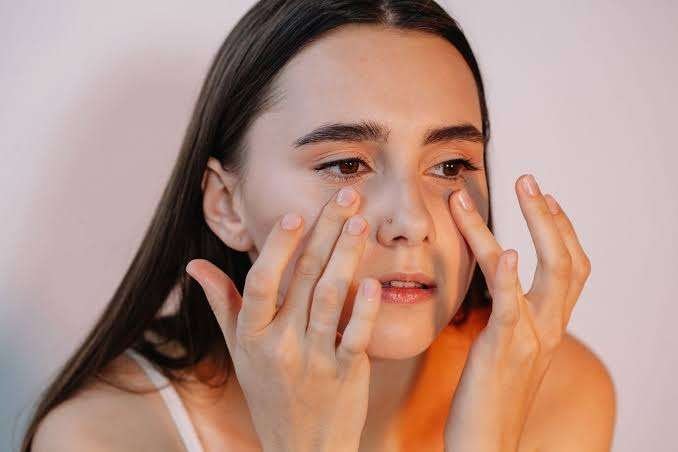Looking for the importance of Vitamin E in the diet for skin health? If you’re seeking natural ways to promote healthy skin, incorporating vitamins into your routine can be crucial to maintain the appearance and health of your skin. While consuming nutrient-rich foods is the best source of vitamins, taking vitamin supplements and using topical products containing vitamins can also be beneficial. In fact, vitamins can also be used to treat various skin conditions such as acne, psoriasis, and sun damage.
This article delves deeper into the importance of vitamin E for skin health. Maintaining healthy skin involves multiple factors, including genetics and environmental factors such as sun exposure and pollution. However, one aspect that is often overlooked is nutrition, particularly the role of vitamins in maintaining healthy and glowing skin. Vitamin E, in particular, is essential for skin health. It is a fat-soluble nutrient with anti-inflammatory properties. Vitamin E plays a crucial role in supporting the immune system, cell function, and skin health.
As an antioxidant, it effectively fights against free radicals produced by the metabolism of food and toxins in the environment. Studies suggest that vitamin E may reduce UV damage to the skin. It may also be effective in reducing the symptoms of atopic dermatitis and fatty liver disease and slowing the progression of mild to moderate Alzheimer’s disease. Moreover, vitamin E is also used to widen blood vessels, which lowers the risk of blood clots.
People Also Read: Why Getting Enough Vitamin D is Beneficial for Your Health
What Are The Importance of Vitamin E in the Diet for Skin Health?
Taking care of your skin isn’t just about enhancing your appearance, but also about feeling confident and potential skin issues such as dryness and skin cancer in the future. The wide range of products available in the skincare aisle can be overwhelming, but simple and natural ingredients like vitamin E can be highly effective. So, achieving healthy skin doesn’t have to be complicated, and incorporating vitamin E into your routine can be a great step towards achieving a healthy and glowing complexion.
Vitamin E is a fat-soluble vitamin, meaning that it dissolves in fat and is stored in the body’s fatty tissues. It is an important antioxidant, meaning that it helps to protect cells in the body from damage caused by free radicals. Free radicals are unstable molecules that can cause damage to cells, including skin cells, leading to premature aging and an increased risk of skin cancer. Vitamin E helps to neutralize these free radicals, protecting the skin from damage.
In addition to its antioxidant properties, Vitamin E is also important for maintaining healthy skin cell function. It plays a role in regulating cell growth and division, which is important for the renewal of skin cells. This helps to keep the skin looking fresh and youthful, as well as aiding in the healing of wounds and reducing the appearance of scars.
One of the most well-known benefits of Vitamin E for skin health is its moisturizing properties. Vitamin E is often added to skin care products like creams and lotions due to its ability to help lock in moisture. This can be especially beneficial for individuals with dry or sensitive skin, as it can help to soothe and hydrate the skin, reducing redness and irritation.
Research has also suggested that Vitamin E may have anti-inflammatory properties, which can be beneficial for individuals with inflammatory skin conditions like acne, psoriasis, and eczema. One study published in the Journal of Drugs in Dermatology found that topical application of Vitamin E was effective in reducing the severity of symptoms in patients with eczema.
So, how can you incorporate Vitamin E into your diet to reap these skin health benefits? Fortunately, there are many foods that are rich in this important nutrient. Some of the best sources of Vitamin E include:
Nuts and seeds: almonds, sunflower seeds, and hazelnuts are all excellent sources of Vitamin E.
Vegetable oils: olive oil, sunflower oil, and safflower oil are all high in Vitamin E.
Leafy green vegetables: spinach and kale are both good sources of Vitamin E.
Avocado: this creamy fruit is not only delicious but is also a good source of Vitamin E.
Supplementation is also an option for those who may not be getting enough Vitamin E from their diet alone. However, it is important to speak with a healthcare provider before starting any new supplement regimen, as excessive amounts of Vitamin E can be harmful.
People Also Read: The Importance of Vitamins on a Day-to-Day Basis
Conclusion
Vitamin E is an important nutrient for maintaining healthy, glowing skin. Its antioxidant properties help to protect the skin from damage, while its role in cell growth and division aids in skin cell renewal. Its moisturizing and anti-inflammatory properties also make it a valuable addition to any skin care routine. By incorporating Vitamin E-rich foods into your diet and potentially supplementing under the guidance of a healthcare provider, you can support healthy skin from the inside out.




